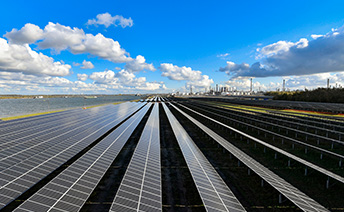Canadian Fuels Association (CFA)
CFA represents Canada’s transport fuels industry, including companies that process crude oil into transport fuels and deliver those products to market.[1]
Membership of board/executive committee: Shell is a member of the board.
- 2022 assessment outcome: Aligned
- 2021 assessment outcome: Aligned
Summary
Shell benefits from its membership of CFA, in particular through CFA’s advocacy of policies that shape the downstream business.
In 2022, Shell welcomed CFA’s update to its Driving to 2050 vision which outlines CFA member commitment to support a strong and resilient economy as well as meaningful reductions in greenhouse gas emissions.[2]
We have found CFA to be aligned with our climate and energy transition-related policy positions.
We will encourage CFA to:
- Publish more information on its website about its positions on key climate and energy transition topics. This includes its support for policies that enable different ways to produce decarbonised hydrogen, and its support for electrification using renewable or low-carbon power sources.
We will remain a member of CFA. We will continue to engage the association on climate and energy transition topics. We will continue to track alignment between CFA’s climate and energy transition-related positions and our own.
Further information
Click on the sections below to read more.
- CFA has stated support for the Canadian government’s goal of achieving net-zero emissions by 2050.[3] It has also stated that “achieving our national emissions-reduction targets and meeting Canada’s commitments under the Paris Agreement will require a profound change – nothing short of a transformation in our transportation energy system.”[4]
- In a statement welcoming the Clean Fuel Regulations in June 2022, CFA stated that “as the supplier of 95% of Canada’s transportation fuels, our industry will play a critical role in maintaining a strong, resilient economy while driving down emissions in support of Canada’s Net Zero goals.”[5]
- CFA has stated support for a carbon price.[6]
- CFA has stated support for improving energy efficiency within the refining sector.[7] [8]
- CFA has stated support for policies that enable the various ways to produce hydrogen, stating that “all types of hydrogen will have a role to play in Canada’s low-carbon future”, and advocating for a focus on “reducing carbon intensity not the colour”, and noting that “this means producing grey and blue hydrogen to start lowering carbon intensity while giving time for green hydrogen production to commercialize.”[9]
- In its 2022 statement to the Standing Committee on Environment and Sustainable Development, CFA stated that governments can play a role in attractive investments, including by promoting “alignment of federal and provincial policies to accelerate low-carbon fuel technologies including sustainable aviation fuel, hydrogen and electrification”.[10]
No position
- CFA has stated support for CCUS, stating that it has the “potential to unlock significant emissions reductions”, and that “these long-term investments require regulatory clarity and innovative policies to position Canada as a global leader in low-carbon fuels.”[11]
No position
No position
- In its 2022 statement to the Standing Committee on Environment and Sustainable Development, CFA stated that governments can play a role in attractive investments, including by promoting “alignment of federal and provincial policies to accelerate low-carbon fuel technologies including sustainable aviation fuel, hydrogen and electrification”.[12]
No position
- CFA supports decarbonisation of light-duty road transport; it supports a technology-neutral approach in the transport sector and advocates for a role for low-carbon fuels.[13] Shell has stated support for the government’s intent to require all new light-duty vehicles sold in Canada to be zero-emissions by 2035, but notes the importance of regional considerations and the role for solutions such as hydrogen and biofuels in some contexts.
- In a statement dated June 2022, CFA stated support for the Canadian government’s Clean Fuel Regulations.[14] CFA stated “Canada’s newly-released Clean Fuel Regulations (CFR) are a bold step towards the low-carbon transportation sector. As part of our national and international fight against climate change, these regulations will be a key driver for investment in low-carbon technologies and infrastructure and will result in significant emission reductions within Canada’s transportation industry in support of Canada’s climate goals.” CFA also state their support for a technology-neutral approach and their belief “that low-carbon fuels will be part of Canada’s energy mix for generations to come”.[15]
- In a statement to the Standing Committee on Environment and Sustainable Development in September 2022, CFA stated that “we believe all transportation energy alternatives will be needed to achieve Net Zero and low-carbon fuels – and notably biofuels could contribute over 50% of emission reductions in the transportation sector by 2050.”[16]
- CFA supports decarbonisation of heavy-duty road transport; it supports a technology-neutral approach in the transport sector and advocates for a role for low-carbon fuels.[17]
- In a statement dated June 2022, CFA stated support for the Canadian government’s Clean Fuel Regulations, stating that “these regulations will be a key driver for investment in low-carbon technologies and infrastructure and will result in significant emission reductions within Canada’s transportation industry in support of Canada’s climate goals.”[18]
- In a statement to the Standing Committee on Environment and Sustainable Development in September 2022, CFA stated that “we believe all transportation energy alternatives will be needed to achieve Net Zero and low-carbon fuels – and notably biofuels could contribute over 50% of emission reductions in the transportation sector by 2050.”[19]
No position
- CFA has stated: “Biomass-based and synthetic liquid fuels are ideal emissions-reduction solutions in aviation and heavy freight, where high energy density is essential. Electricity could be a path forward for lighter aircraft on short-haul routes”.[20]
- In a statement to the Standing Committee on Environment and Sustainable Development in September 2022, CFA stated that there are other ways in which governments can play a role in attracting investments, including: “Promoting alignment of federal and provincial policies to accelerate low-carbon fuel technologies including sustainable aviation fuel, hydrogen and electrification”.[21]
- CFA is a member of the Canadian Council for Sustainable Aviation Fuel which “plans to serve as a voice for its members with government and nongovernment stakeholders to define the strategy and the roadmap for the creation of a sustainable and profitable SAF market in Canada”.[22]
No position
[1] https://www.canadianfuels.ca/about/
[2] https://www.canadianfuels.ca/wp-content/uploads/2022/11/Moving-Forward-Together_2022-Update-to-CFA-Driving-to-2050-Vision.pdf
[3] https://www.canadianfuels.ca/wp-content/uploads/2021/10/On-Our-Way-Driving-to-2050.pdf
[4] https://www.canadianfuels.ca/wp-content/uploads/2020/11/CFA_Driving-to-2050.pdf
[5] https://www.canadianfuels.ca/news-commentary/cfa-clean-fuel-regulation/
[6] https://www.canadianfuels.ca/news-commentary/three-principles-should-guide-canadas-carbon-pricing/
[7] https://www.canadianfuels.ca/news-commentary/improving-energy-efficiency-at-refineries-no-small-task/
[8] https://www.canadianfuels.ca/news-commentary/how-canadian-refineries-are-reducing-ghg-emissions/
[9] https://www.canadianfuels.ca/news-commentary/cfa-statement-on-the-natural-resources-committee-study-of-low-carbon-and-renewable-fuels/
[10] https://www.canadianfuels.ca/news-commentary/cfa-statement-to-the-standing-committee-on-environment-and-sustainable-development/
[11] https://www.canadianfuels.ca/wp-content/uploads/2021/10/On-Our-Way-Driving-to-2050.pdf
[12] https://www.canadianfuels.ca/news-commentary/cfa-statement-to-the-standing-committee-on-environment-and-sustainable-development/
[13] https://www.canadianfuels.ca/news-commentary/cfa-clean-fuel-regulation/
[14] https://www.canadianfuels.ca/news-commentary/cfa-clean-fuel-regulation/
[15] https://www.canadianfuels.ca/news-commentary/cfa-clean-fuel-regulation/
[16] https://www.canadianfuels.ca/news-commentary/cfa-statement-to-the-standing-committee-on-environment-and-sustainable-development/
[17] https://www.canadianfuels.ca/news-commentary/cfa-clean-fuel-regulation/
[18] https://www.canadianfuels.ca/news-commentary/cfa-clean-fuel-regulation/
[19] https://www.canadianfuels.ca/news-commentary/cfa-statement-to-the-standing-committee-on-environment-and-sustainable-development/
[20] https://www.canadianfuels.ca/wp-content/uploads/2020/11/CFA_Driving-to-2050.pdf
[21] https://www.canadianfuels.ca/news-commentary/cfa-statement-to-the-standing-committee-on-environment-and-sustainable-development/
[22] https://c-saf.ca/what-is-c-saf/










